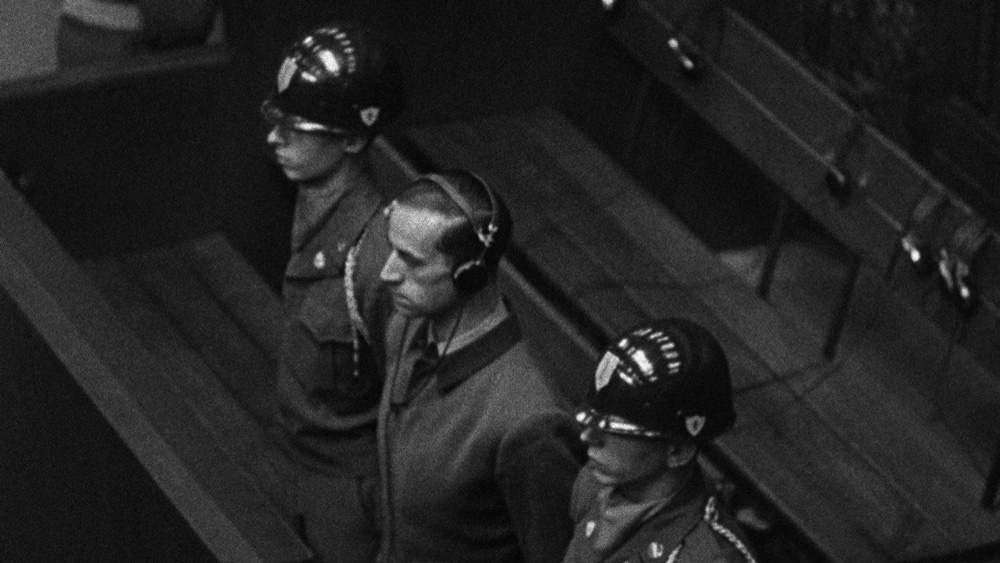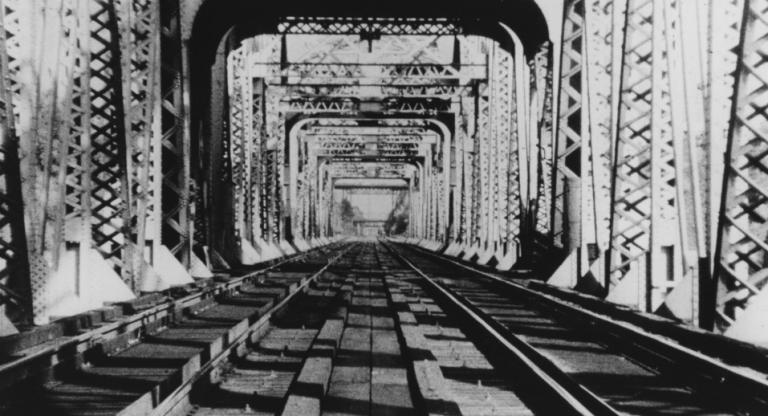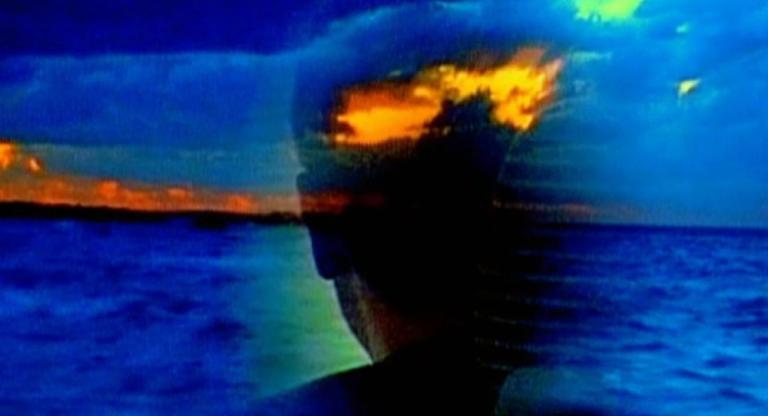“Why must people be exceptions?” This is the main question haunting Marcel Ophuls’s The Memory of Justice (1976), a four-plus hour documentary that takes as its subject the concept of “justice” made precedent by the U.S.-led Nuremberg trials of Nazi officers in the immediate aftermath of World War II, which were intended to prove that the systematic genocide of Jews and other undesirables was planned from the top. Years before Errol Morris started screaming at his interviewees from behind his “Interrotron,” Ophuls was inserting his own voice into his documentaries, eagerly breaking the fourth wall in his cross-examinations of Nazi war criminals, Pentagon officials and his own family, including his wife Regine, who comments that she’s “not too happy that you make this kind of film only, Marcel.” Ophuls is equally as haunted by the exodus of his Jewish family (and filmmaker father) from Germany to France in the 1930s, as he is by more recent atrocities committed by the United States in Vietnam in the name of democracy and freedom.
From a woke 21st century perspective, I could certainly see an argument against soliciting the sentiments of those who planned and enabled genocides. But The Memory of Justice measures the chasm between actions and words; the kind of knee-jerk denial exhibited by Ophuls’s interviewees is all the more stunning when you remember the world has been made, more or less, in the image of their narratives. Ophuls refuses to abandon the fact that human monsters were still human beings once, and lasers in on the all-too-human act of rationalization. Witnessing people disentangle such cognitive dissonances in real time—in some cases, before doubling or tripling down on the original rationalization—is more suspenseful than any fiction thriller (and indeed, the phrase “true crime” crossed my mind more than once during Ophuls’s epic investigation.) One high-ranking former Nazi official shrugs off incontrovertible evidence of death camps and argues that, in fact, prisons—such as the one he was sent to—are worse than camps, which at least allow freedom of mobility. Another dismisses the idea of such camps altogether, as if denying a lurid rumor; however bad things got under Hitler, he expresses deep skepticism at the idea they ever reached that level of sadism. It reminds me of the stand-up comedian Lenny Bruce’s legendary joke about being Jewish: “A lot of people say to me, 'Why did you kill Christ?' I dunno, it was one of those parties, got out of hand, you know…”
Ophuls’s film would form a beautiful complement to the omnibus film Germany in Autumn (1978), made by a consortium of filmmakers in response to the Red Army Faction kidnapping (and eventual murder) of Hanns Martin Schleyer, the West German automotive executive and one-time SS-Untersturmführer. In that film, Rainer Werner Fassbinder stages an argument with his real-life mother—who lived through the Third Reich—in which she all but admits that an authoritarian leader who maintains order is better than a democratically elected leftist. Fassbinder pounds his fist on the table in dismay; the next shot is a mirror adorned with lines of cocaine, the filmmaker’s face reflecting back on him. If more magisterial in its proceduralism, The Memory of Justice is like an extended documentary remix of that sequence, which is itself one of the most searing bits of Fassbinder’s body of work.
The Memory of Justice was restored in 2015 by the Film Foundation, and I was lucky enough to see an 86-year-old Ophuls introduce the film in person at that year’s Toronto International Film Festival. But the film has proven elusive to program or watch as a casual viewer in the near-decade since due to complicated rights issues. (Whatever his sins as an artist, Mike Nichols deserves infinite credit for, according to Hamilton Fish’s reporting in The Nation, helping Ophuls and his producers find the money to complete The Memory of Justice; hence, the somewhat baffling Paramount Pictures logo at the beginning of the film.) This lapse into obscurity is a shame in part because Ophuls, whose signature masterwork The Sorrow and the Pity (1969) is probably more famous today as a throwaway bit in Annie Hall (1977) than a documentary people are actually watching and engaging with, has described Memory as his favorite of his films. His reckoning with the Holocaust was daring in 1976, but the most urgent context in which The Memory of Justice exists is the American one, as seeing it more than fifty years later confirms that the American-instituted concepts of “human rights” and “international law” have rarely added up to more than political theater. As an American taxpayer, I find it impossible to watch this film today without it invoking our daily explaining-away of genocide in Gaza and other places.
The Memory of Justice screens this evening, September 12, and into next week, at Anthology Film Archives as part of their ongoing “Premieres/Revivals” series.





